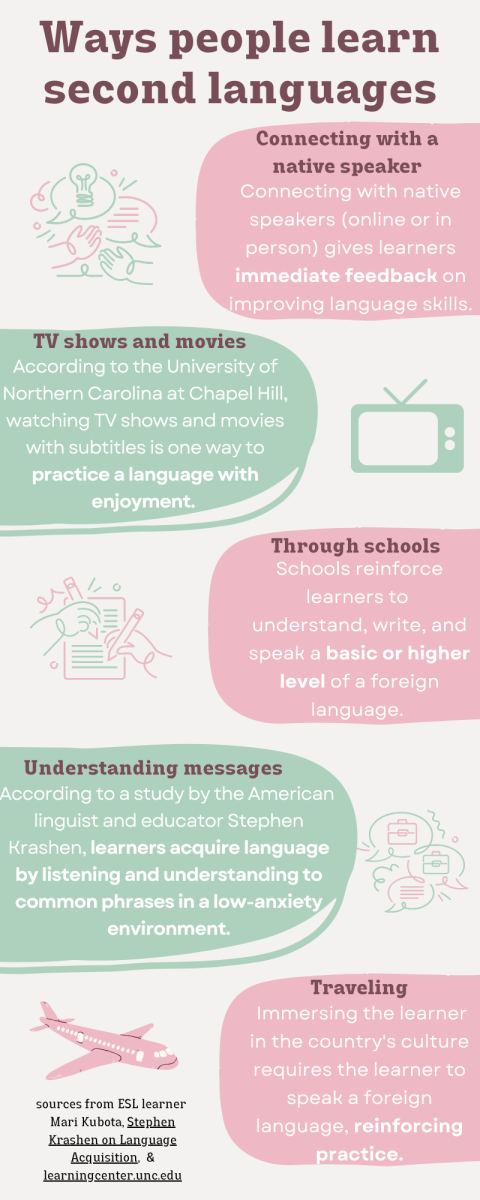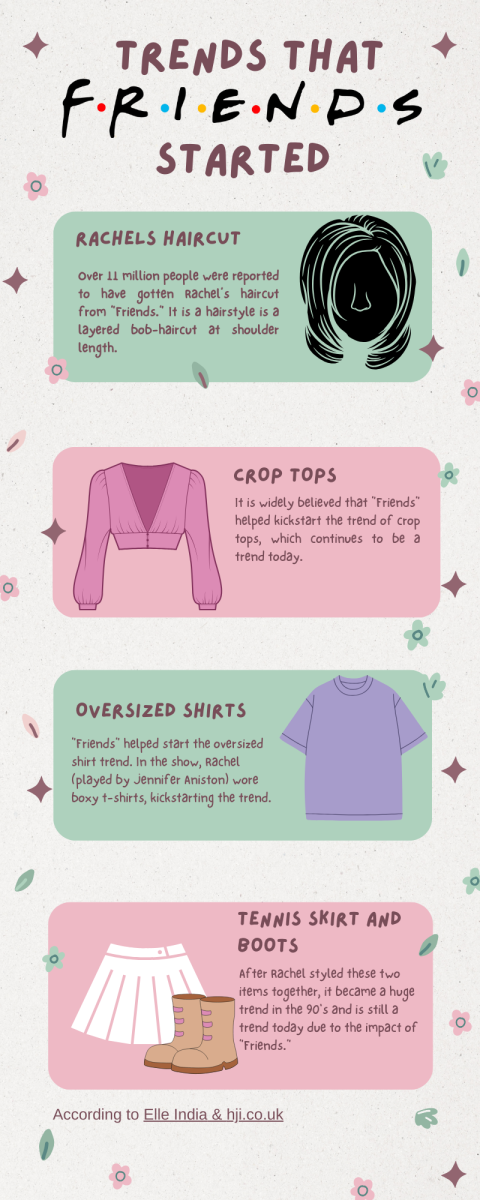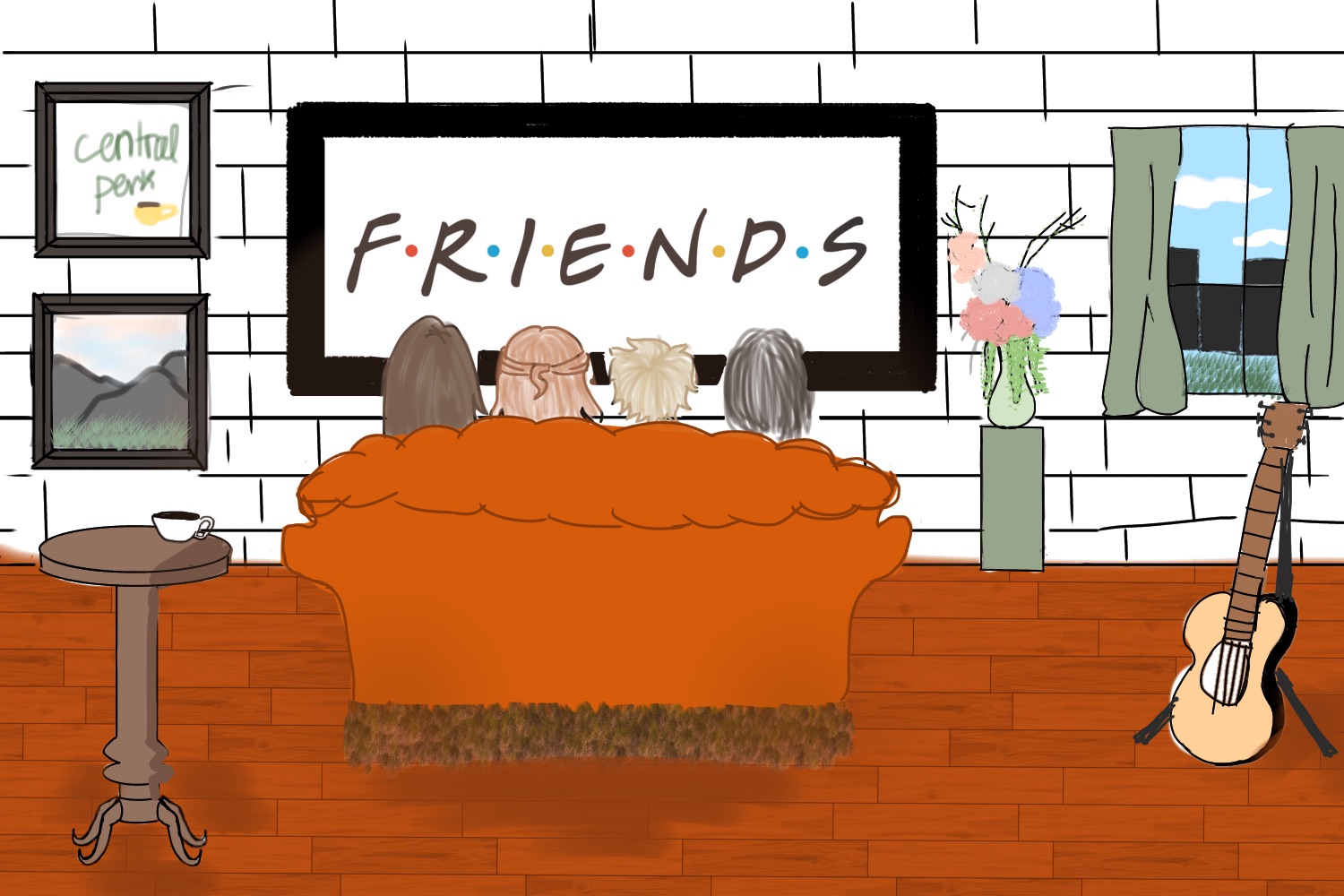Ninety-seven billion minutes in viewing, and still increasing.
According to Nielsen, that’s how many people watched a sitcom that changed their lives. A single sitcom that received 62 Emmy nominations and won six. The “Friends” sitcom connected fans worldwide through a screen.
Through the 10 seasons of six friends navigating life in New York, a particular segment of international viewers were able to bond through one thing: speaking English.
Pop culture is the viral content “we consume by the billions,” according to Alexandre O. Philippe in his TED talk “Why Pop Culture?” It lets society communicate our experiences, values, and thoughts on a big scale, the screen. It expresses conflicts and thoughts on specific subjects and allows people to learn how to unite and communicate in an entirely different language through binging shows like “Friends.”
Viewers can pick up conversations in the TV show and bond over the experience of learning English from a show. According to Mari Kubota, a University of California, Berkeley graduate who learned English through school and entertainment, with such relatability, humor, and slow-paced dialogue, it’s easier for non-native speakers to learn English through pop culture.

“Friends” illustrates the comedy and complexity of romance, friendship, mental health, education, and starting in the workforce. The show displays the relatable aspects of life that many connect with.
According to Nielsen, on the week of Nov. 6-12, “Friends” had 716 million minutes overall on Max.
“I’ve watched every single episode, some of them multiple times. You aren’t directly interacting with the cast, but when you think about the time that the events happen in real life, you become invested in the show,” said Monica Brillantes, a show fan since it aired in 1994.
Brillantes found comfort in sadness through being connected to the show. She moved to the United States from the Philippines when she was 16. She immediately missed her friends and wanted to avoid adapting to a new culture.
“I believed I didn’t need to form more friendships in America. When I started watching ‘Friends,’ I did not want anyone to disturb me. I felt as if the main cast were my friends,” Brillantes said.
However, when Brillantes watched more episodes of “Friends,” she started applying the behaviors she saw in scenes to real life and was able to adapt to her life in America.
In addition to learning behaviors to interact with others, she became more insightful when understanding her friends’ thoughts and feelings. It resulted in her being able to connect over a shared interest even when the show ended.
Such relatability makes the show timeless as fans are multi-generational, captivating audiences of all ages.
“The humor got me immediately attached to the show unlike any other,” said Nicholas Kinder, a sophomore at Carlmont High School.
The visual acting makes viewers understand and, therefore, allows viewers to infer what the words mean.
Kubota’s learning with pop culture demonstrates the success of language acquisition: the natural process of people, specifically children, being able to understand a language without being given lessons.

Kubota learned basic writing, reading, and speaking in English through school programs in Japan at 13 years old. She watched movies and TV shows outside school and worked to improve her English further.
“Language relates to the emotional level, so understanding a character’s emotions in a movie helps me figure out how they think and feel. From there, I learn how to use words in conversations,” Kubota said.
In fact, according to the University of Pittsburgh, the theory of language acquisition demonstrates that one of the ways of learning languages is indirect contact, where the contact between speakers of different languages is through media.
According to Kubota, relatability is the key to language learning, as is putting learning into practice.
“Often, the most learning happens outside of the classroom,” said Lynette Garcia, the career education program coordinator and English as a Second Language (ESL) teacher at the San Mateo Adult High School.
Garcia encourages her ESL students to interact with the community to practice English and make stronger bonds with each other.
“The volunteer opportunities have helped students find job opportunities in healthcare. because of that, healthcare in general is projected to grow approximately 24% between now and 2032,” Garcia said.
Learning a foreign language and improving her comprehension of English by binging English shows have created more opportunities and connections for people like Kubota, creating a sense of unity for her.
These experiences all show unity through TV shows.
With the TV show’s significant impact, trends rose in fashion, and famous catchphrases were used. Fans started copying Rachel’s hairstyle and Monica’s outfits, giving the show a lasting impression.
“The show influenced my appearance. I used to have one of Rachel’s hairstyles when I was younger,” Brillantes said.
The rise of these trends gave “Friends” a long-lasting impact and continued to be proven relevant in today’s society. Pop culture continues to revolve around our lives and shape our culture for the better.
“Shows use dialogue and emotion that I don’t always encounter daily. It shows me a different aspect of American culture that I am unfamiliar with, which allows me to understand the culture more,” Kubota said.



